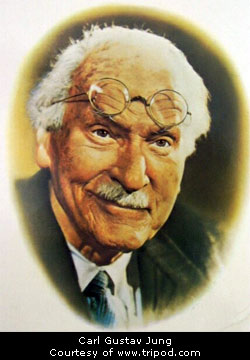GREEK MEDICINE AND MODERN PSYCHOLOGY
Ancient Healing for the Mind and Spirit
Classical Greek Medicine was holistic; it saw the mind and body as one. The Four Temperaments, or constitutional types originally pertained just as much to the body as to the mind. By treating the mind as well as the body, the Greek physicians of antiquity were the first psychologists of Western civilization.
Since the body is more solid and visible, its workings were more open to scientific testing and verification. And so, the physiological side of the classical Greek concepts of humor and temperament were abandoned fairly early on in favor of a physiology and pathology based more on the findings of modern science. However, the psychological notions associated with the Four Temperaments lingered on to become a kind of proto-psychology.
And so, the Four Temperaments went on to become descriptions of character or personality types, or states of mind. These are as follows:
Sanguine - optimistic, hopeful, cheerful, exuberant, outgoing
Choleric - bold, feisty, angry, irritable, contentious, confrontive, ambitious
Phlegmatic - relaxed, slow, sentimental, subjective, passive, stable, good natured
Melancholic - sad, moody, withdrawn, pensive, cautious, prudent, reflective
Given the materialistic emphasis of modern science, it's only natural that psychology and psychiatry were the last branches of science to develop. Not until Sigmund Freud at the end of the nineteenth century did each of these sciences come into its own.
But even then, due to the analytical, reductionistic nature of modern science, the mind was viewed as being separate from the body. This mind/body split, or schism, has inflicted much needless harm and suffering on modern man.
Modern Psychological Typology
The great spiritual psychologist Carl Gustav Jung developed a system of psychological typology based on the Four Elements of Greek Medicine and their associated temperaments. These are:
Intuitive Type (Fire / Choleric): Bold, flambuoyant, imaginative; perceiving the subtle energies, possibilities and associations of things more than their actual physical reality.
Sensation Type (Earth / Melancholic): Cautious, prudent, reserved, pragmatic, efficient, reliable; perceiving just the actual physical reality of things, exactly as they are, through the ordinary five senses.
Thinking Type (Air / Sanguine): Subtle, sophisticated, refined; relates isolated facts and phenomena to each other through underlying ideas and conceptual frameworks.
Feeling Type (Water / Phlegmatic): Emotive, sentimental, passive, subjective; evaluates experiences through their direct, visceral impact on the feelings and emotions.
The first two personality types, Intuitive and Sensation, Jung considered to be opposing modes of perception. The second two, Thinking and Feeling, Jung considered to be opposing modes of judgement. Although Jung's system does allow for mixed types, one can't be both Intuitive and Sensation because these are opposing modes of perception; neither can one be both Thinking and Feeling, for the same reason.
If one analyzes Jung's types in terms of the classical Greek notions of element and temperament, the Intuitive and Sensation types correspond to the Fire and Earth elements, respectively, which are both Dry. The Thinking and Feeling types correspond to the Air and Water elements, respectively. which are both Wet. In essence, Jung is saying that you can't mix temperaments / types that have the same secondary quality of Wetness or Dryness. And so, Jung's system goes against classical authorities on temperament, who say that you can't mix temperaments having the same active or primary quality of Hot or Cold.
Methods of personality typology based on Jung's model are still very much in use today in the psychological and counseling professions. In this way, Greek Medicine still lives on.

















